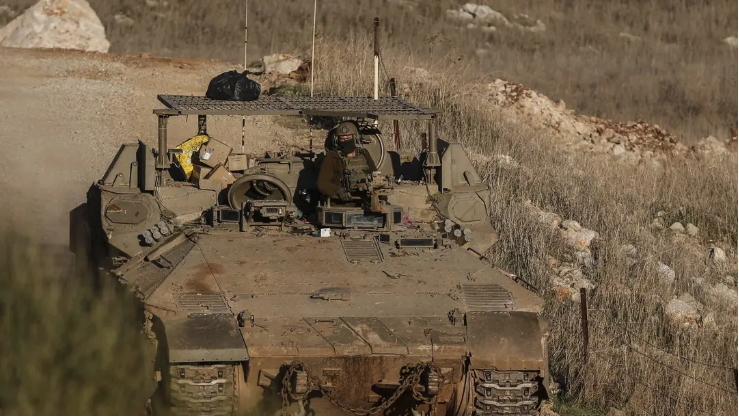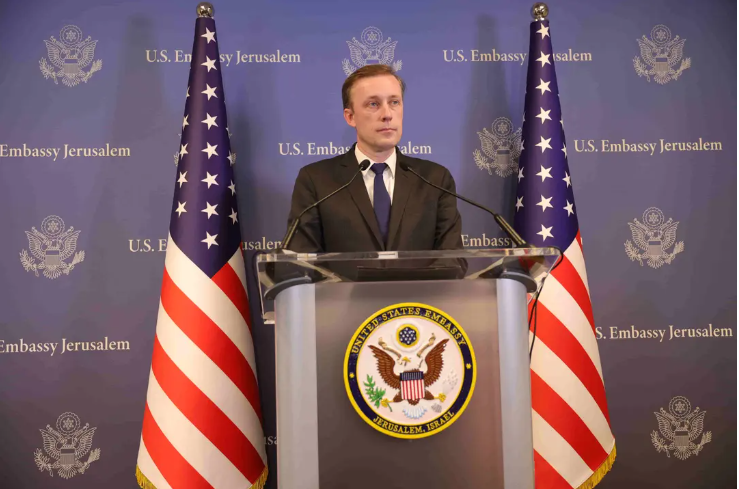Hezbollah: Attacks Will End When Gaza War Ends
After pagers and hand-held radios used by Hezbollah members exploded across Lebanon and Syria on Tuesday and Wednesday, the group's leader Hassan Nasrallah said in a speech on Thursday that the only way for Israel to return displaced civilians to their homes in the north is to end its campaign in...
0:00
/1861
Facts
- After pagers and hand-held radios used by Hezbollah members exploded across Lebanon and Syria on Tuesday and Wednesday, the group's leader Hassan Nasrallah said in a speech on Thursday that the only way for Israel to return displaced civilians to their homes in the north is to end its campaign in Gaza.[1]
- Nasrallah admitted that the attacks — which killed over 30 people and wounded thousands — were a 'painful blow' but vowed to keep fighting. Israeli jets flew low over Beirut and broke the sound barrier while Nasrallah was delivering the speech.[2][3]
- Nasrallah added that he hoped Israeli forces invaded south Lebanon, as it would create a 'historic opportunity' for Hezbollah. Nasrallah did not specify how the group plans to respond to the attack.[4]
- The Israeli military's chief of staff Herzi Halevi said on Thursday that the military had 'approved plans for the northern sector.' The plans are expected to be presented to the country's political leadership for consideration.[5]
- Israeli media reported on Thursday that an alternative cease-fire proposal was being considered. The plan would see Hamas leader Yahya Sinwar safely leave Gaza, the release of all hostages, the 'demilitarization' of the strip, the release of Palestinian prisoners, and an end to the war. The proposal has not been officially confirmed.[6]
- Israeli media also reported, however, that the Israeli military's envoy to the talks told family members of hostages in Gaza that he and the rest of the negotiating team were unfamiliar with the alternate proposal that had been reported.[7]
Sources: [1]Timesofisrael (a), [2]The Hill, [3]Timesofisrael (b), [4]Al Jazeera, [5]AL, [6]Jerusalem Post and [7]Timesofisrael (c).
Narratives
- Pro-establishment narrative, as provided by New York Times. Though the pager attack was a precise operation, any escalation in the region is counterproductive to cease-fire negotiations and the freeing of Israeli hostages. Israel has a right to defend itself from terrorist threats, but it's paramount that the country's leadership prioritizes de-escalation. The US was not aware of the pager attack and will continue to work with mediators to reach a deal.
- Pro-Israel narrative, as provided by Jerusalem Post. Though Israel has not taken credit for this well-planned operation, it should demonstrate to Hezbollah and its patrons in Tehran that it cannot withstand an Israeli assault. The group's highly-trained and well-equipped ranks have been thrown into chaos, and its vulnerability has never been so clear. Hezbollah should end its terrorist attacks on Israel if it seeks to protect Lebanon.
- Pro-Palestine narrative, as provided by Middle East Eye. Israel continues to isolate itself internationally due to its genocidal campaign in Gaza and its insidious aggression against Lebanon. As Israeli attacks kill thousands, the US continues to shield Israel from accountability and ensure that it is armed to the teeth. This war will only end when the US ends its support for Israel's genocidal ambitions in Gaza and the wider region.
- Narrative D, as provided by Almayadeen. This attack against Lebanon is a clear example of Israeli terrorism in the region and its disregard for human life. Both Lebanese authorities and Hezbollah will investigate the security failures that led to this attack, and a response is guaranteed. Hezbollah is ready and able to defend Lebanon from Israeli aggression.







